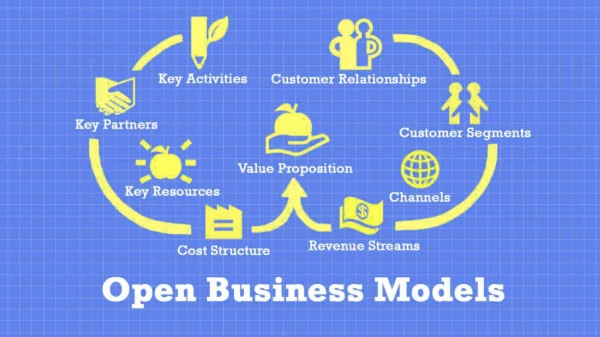Open Business Models: Difference between revisions
m (Text replace - "openfarmtech.org/weblog" to "blog.opensourceecology.org") |
(Added a Category to the Page) |
||
| (4 intermediate revisions by 2 users not shown) | |||
| Line 1: | Line 1: | ||
{{Category=Guiding philosophies}} | {{Category=Guiding philosophies}} | ||
We make this distinction between OSE open business models and others because the others tend to call themselves open source when only item (1) above holds, while the critical aspects of (2) are not open. We believe that distributive economic business models require access to both (1) and (2). | [[File:obm.jpg|600px]] | ||
Open business models, in the OSE definition - mean that not only is the product based on open design, but the way of producing and distributing the product (business model) is open as well. In short, the OSE Open Business Model involves two parts: | |||
#Open design for the product being provided, and | |||
#Open design of the production and distribution (business model proper). | |||
(2) may include production optimization, workflow management, business structure, and other supporting details that enable economically-significant, effective production. (1) in itself is a start, but it is not sufficient to have a workable enterprise. | |||
We make this distinction between OSE open business models and others because the others tend to call themselves open source when only item (1) above holds, while the critical aspects of (2) are not open. We believe that distributive economic business models require access to both (1) and (2). This is captures on the concept of [[Distributive Enterprise]]. When applied to creating the [[Open Source Economy]], Distributive Enterprise can lead to [[Distributed Market Substitution]]. | |||
See blog post on Open Business Models: | See blog post on Open Business Models: | ||
| Line 8: | Line 15: | ||
http://blog.opensourceecology.org/?p=510 | http://blog.opensourceecology.org/?p=510 | ||
And the following video: | And the following [http://www.youtube.com/v/h7MbhnMmKps video]: | ||
<html> | <html> | ||
| Line 16: | Line 23: | ||
<param name="allowscriptaccess" value="always"></param><embed src="http://www.youtube.com/v/h7MbhnMmKps&hl=en&fs=1" type="application/x-shockwave-flash" allowscriptaccess="always" allowfullscreen="true" height="344" width="425"></embed></object></p> | <param name="allowscriptaccess" value="always"></param><embed src="http://www.youtube.com/v/h7MbhnMmKps&hl=en&fs=1" type="application/x-shockwave-flash" allowscriptaccess="always" allowfullscreen="true" height="344" width="425"></embed></object></p> | ||
</html> | </html> | ||
[[Category: Business/Economics/Finance]] | |||
Latest revision as of 23:55, 19 March 2021
Main > OSE > Guiding philosophies
Open business models, in the OSE definition - mean that not only is the product based on open design, but the way of producing and distributing the product (business model) is open as well. In short, the OSE Open Business Model involves two parts:
- Open design for the product being provided, and
- Open design of the production and distribution (business model proper).
(2) may include production optimization, workflow management, business structure, and other supporting details that enable economically-significant, effective production. (1) in itself is a start, but it is not sufficient to have a workable enterprise.
We make this distinction between OSE open business models and others because the others tend to call themselves open source when only item (1) above holds, while the critical aspects of (2) are not open. We believe that distributive economic business models require access to both (1) and (2). This is captures on the concept of Distributive Enterprise. When applied to creating the Open Source Economy, Distributive Enterprise can lead to Distributed Market Substitution.
See blog post on Open Business Models:
http://blog.opensourceecology.org/?p=510
And the following video:
